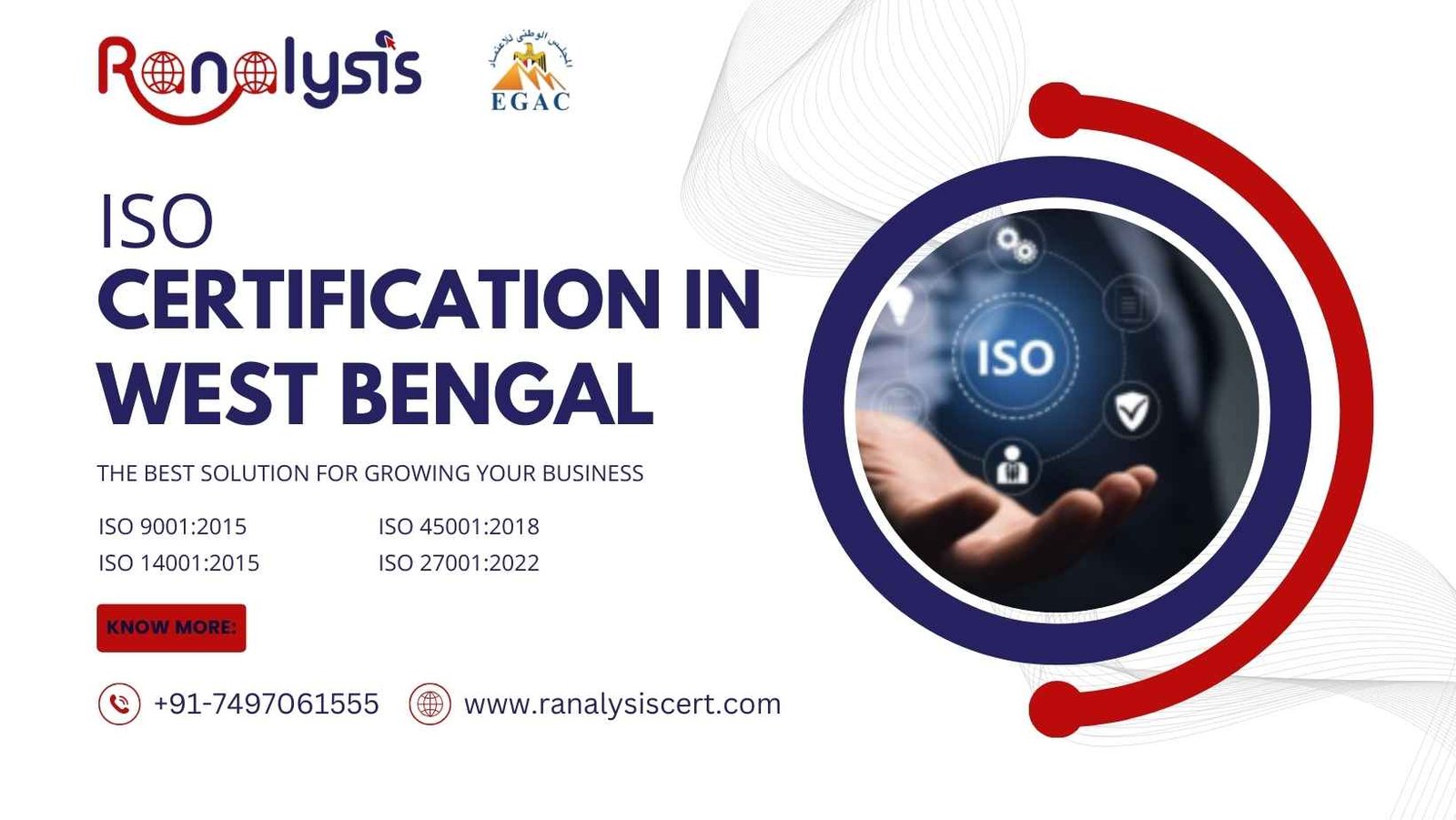
ISO Certification in West Bengal: Success in Textile & Jute Industry
West Bengal, known for its rich industrial heritage, has a flourishing textile and jute sector. These industries significantly contribute to the state’s economy, providing employment to thousands and playing a crucial role in exports. However, in today’s highly competitive market, maintaining quality, safety, and sustainability is more important than ever. One of the most effective ways to achieve these goals is through ISO certification in West Bengal.
Get Free Quotation
Inroduction
ISO certification offers a structured approach to improving efficiency, ensuring international compliance, and enhancing product quality. For textile and jute businesses, obtaining ISO certification not only strengthens credibility but also aligns operations with global standards. This article explores the benefits of ISO certification, the relevant standards for these industries, and the process of obtaining ISO certification in West Bengal.
Why ISO Certification is Essential for Textile & Jute Industries
The textile and jute industries in West Bengal face several challenges, including tough market competition, fluctuating raw material costs, and sustainability concerns. ISO certification in West Bengal can help businesses overcome these hurdles and unlock new growth opportunities. Here’s how:
1. Enhanced Product Quality
ISO certification, particularly ISO 9001 (Quality Management System), helps textile and jute manufacturers streamline operations, reduce defects, and ensure consistent product quality. This leads to improved customer satisfaction and a stronger market reputation.
2. Environmental Compliance and Sustainability
Textile and jute production come with environmental challenges, such as water pollution and waste management. ISO 14001 (Environmental Management System) helps businesses adopt sustainable practices, reduce waste, and minimize their environmental impact.
3. Occupational Health & Safety
Worker safety is a key concern in industrial operations. ISO 45001 (Occupational Health & Safety Management System) ensures that textile and jute industries create safer work environments by identifying hazards and implementing risk control measures.
4. Greater Export Opportunities
International buyers prefer working with ISO-certified suppliers because it guarantees compliance with global quality standards. For jute exporters in West Bengal, ISO certification enhances credibility and creates new business opportunities worldwide.
5. Regulatory Compliance
ISO certification helps ensure compliance with these regulations, reducing legal risks and potential penalties.
Key ISO Standards for the Textile & Jute Industry
To remain competitive and meet global expectations, textile and jute manufacturers in West Bengal should consider the following ISO certifications:
✅ ISO 9001:2015 – Quality Management System for improving process efficiency and maintaining consistent quality.
✅ ISO 14001:2015 – Environmental Management System for sustainable and eco-friendly production practices.
✅ ISO 45001:2018 – Occupational Health & Safety Management System to create a safer working environment.
✅ ISO 50001:2018 – Energy Management System to optimize energy consumption and reduce operational costs.
✅ ISO 26000 – Social Responsibility Standard for ethical and sustainable business practices.
How to Obtain ISO Certification in West Bengal
Getting ISO certification in West Bengal for textile and jute businesses involves a structured process. Here’s a step-by-step guide:
1. Choose the Right ISO Standard
Identify the most suitable ISO standard based on your business objectives. For example, companies focused on exports should prioritize ISO 9001 and ISO 14001.
2. Conduct a Gap Analysis
Evaluate current processes to identify gaps in compliance with the chosen ISO standard. This helps in determining necessary improvements.
3. Implement Necessary Changes
Make process improvements, train employees, and ensure proper documentation to meet ISO requirements.
4. Internal Audit
Perform an internal audit to assess readiness for certification and address any non-conformities.
5. Certification Audit by an Accredited Body
Hire an ISO certification body to conduct an external audit. Upon successful completion, your organization will receive ISO certification.
6. Continuous Improvement
Maintain compliance through regular audits, employee training, and ongoing process improvements.
How ISO Certification is Driving Growth in West Bengal’s Textile & Jute Industry
Several textile and jute manufacturers in West Bengal have successfully leveraged ISO certification to expand their market reach. Companies that adopted ISO 9001 and ISO 14001 have seen significant improvements in product quality, reduced environmental impact, and increased customer trust.
Moreover, government initiatives supporting the textile sector are encouraging more businesses to adopt ISO standards. Many MSMEs in the jute industry are also embracing ISO certification to compete globally and attract foreign buyers.
Conclusion
ISO certification is no longer just an option—it’s a necessity for textile and jute industries in West Bengal. It ensures quality, strengthens regulatory compliance, enhances workplace safety, and opens doors to international markets. With the rising demand for sustainable and high-quality products, ISO certification is the key to long-term success.
For businesses looking to obtain ISO certification, partnering with a trusted certification body ensures a smooth and successful process. By achieving ISO certification, textile and jute industries in West Bengal can strengthen their global presence and drive sustainable growth.
FAQs
ISO certification is a formal recognition that an organization meets international standards set by the International Organization for Standardization (ISO) in areas like quality, environment, safety, and information security.
ISO certification enhances your organization’s credibility, improves operational efficiency, ensures compliance with international standards, and can give you a competitive edge in the market.
We provide certifications for ISO 9001 (Quality Management), ISO 14001 (Environmental Management), ISO 45001 (Occupational Health & Safety), ISO 27001 (Information Security Management), and more.
The steps include:
- Initial consultation and gap analysis
- Documentation review
- Implementation of necessary changes
- Internal audit
- Certification audit by our experts
- Issuance of the ISO certificate upon compliance

